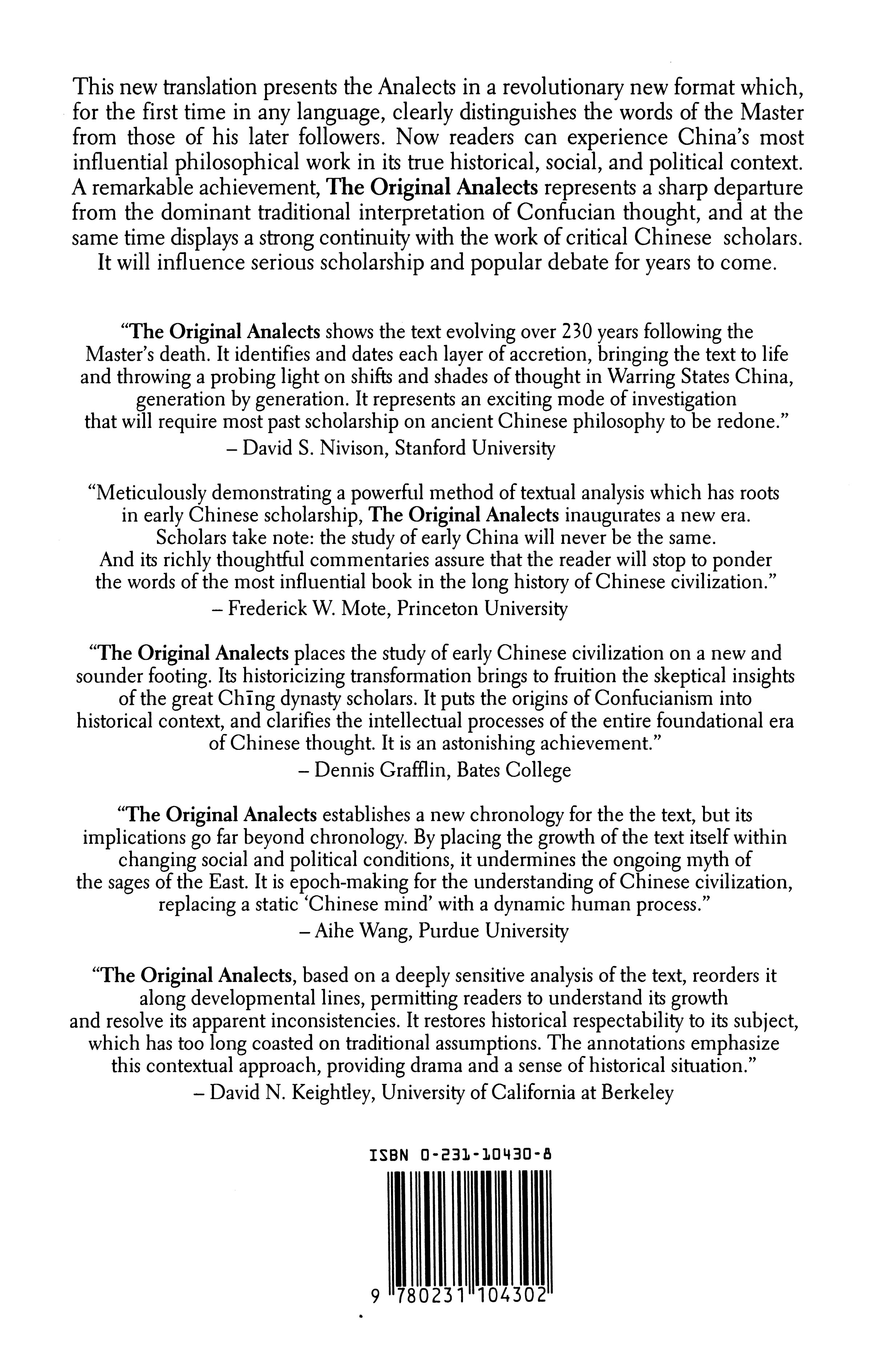Introduction
Reception
Though studiously ignored by major journals in America and Europe, our Analects book did receive many reviews in other places, and was also discussed in the general media, including a cover story in the Atlantic Monthly. Here are some extracts from prepublication comments and postpublication reviews, starting with the ones on the back of the book.
- (Li Dzv-hou, Appendix 2 to Lun Yw Jin Du [in Chinese], 1998). In Two Parts
- (Liu Xiaogan, Foreword to Munro, Concept of Man in Early China, repr 2001). In Four Parts
There have also been many testimonials to the value of the Project for others' work, including its sponsoring of Conferences and other forums where productive scholarly interaction could take place. Here are some extracts from acknowledgements in books, or in first footnotes to articles:
It has also happened that Project results, shared in conferences and conversations, have been appropriated without acknowledgement to the Project. It would be ungraceful to give details, but these cases too, in their own way, are witnesses to the Project's influence and importance.
In recent years, The Original Analects has acquired a further importance. It has come to represent the accretional view of the text, in contrast to (1) the naive view of the Analects as entirely composed of sayings of the Historical Confucius, and also to (2) a recent claim that the Analects was first compiled in the Han Dynasty, from miscellaneous sayings then current. Neither view will explain the evidence of philosophical development within the Analects, or its manifest engagement with other Warring States texts.
Finally, we note with pleasure that The Original Analects is being translated into Chinese, and will be published in China, thus returning the text to its homeland, and bringing our analysis of the text to the land of Tswei Shu (1740-1816) and other critical scholars, going back more than a thousand years, in whose tradition we have worked.
All materials on this site are Copyright © 1993 or subsequently by the Warring States Project or by individual authors
